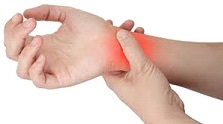Repetitive Strain Injury Symptoms, Causes, Diagnosis and Treatment

What Is Repetitive Strain Injury?
The word RSI (repetitive strain injury) is used to define different painful disorders of the tendons, muscles, and different soft tissues. It’s generally triggered by repetitive usage of the body’s part. Usually, it’s associated to an occupation or task, however, free time activities might also become a reason.
What Are The Symptoms Of Repetitive Strain Injury (RSI)?
Following are the Symptoms of repetitive strain injury:
- Itchy.
- Tightness.
- Dull pain.
- Sore.
- Pain.
- Coldness.
However, the RSI symptoms are likely to grow slowly. In the beginning, the symptoms possibly will occur as you perform the repetitive job and slow down when you rest. Soon enough, the symptoms might be present continually however has a tendency to be prepared worse by doing the repetitive duty. Symptoms of RSI are able to array from slight to serious.
What Causes Repetitive Strain Injury (RSI)?
However the repetitive and frequent activities of different parts of your body is the major cause of RSI, such as, extra usage a computer mouse, typing, etc. some features possibly will also be the cause, for example, poor pose at the same time of movement, making use of extreme force during the movement and do not have sufficient breaks from the job.
In lots of cases, there isn’t any inflammation or swelling and there aren’t any other clear difficulties that grow in the tendons or muscles, and however symptoms created. In addition, it isn’t clear why a number of people develop repetitive strain injury and not like others who perform the similar repetitive responsibilities.
How Is Repetitive Strain Injury (RSI) Diagnosed?
There isn’t any test which a doctor is able to perform to diagnose repetitive strain injury. That is the area where problems may notice. Pains in the zones pretentious by repetitive strain injury are common and might be because of several causes.
If you make a clear condition for instance tendonitis, frozen shoulder, and carpal tunnel syndrome, it can or might not be associated to repetitive responsibilities.
Sometimes Blood tests are performed to reject inflammatory joint ailment. Usually, the diagnosis is prepared on the base that the disorder is grown just by following a repetitive job and is released or partly relieved by stopping that task.
How Repetitive Strain Injury Is Treated?
Following treatment are the possible choices for repetitive strain injury, which includes:
- Medication, which contain anti-inflammatory painkillers (for instance ibuprofen or aspirin), antidepressants, sleeping tablets (if your repetitive strain injury is stopping you from asleep) and muscle relaxants.
- Physiotherapy, which includes guidance on pose and workouts or stretches to aid in relax or strengthen your muscles.
- Steroid injections, to decrease inflammation in that area that is affected (this’s just suggested if an area has sure inflammation triggered by a particular disorder, for example, carpal tunnel syndrome)
- Surgery, to make correction of particular difficulties with tendons or nerves.
Risk Factors For Repetitive Strain Injury
Following are the risk factors of RSI:
1. Unawareness of the signs of warning.
2. More than two hours of continuous computer use and different repetitive movement of hand per day.
3. Smoking.
4. Shortage of regular, everyday breaks.
5. High-pressure task.
6. Tight or Weak muscles.
7. Lack of daily workout.
By : Natural Health News




